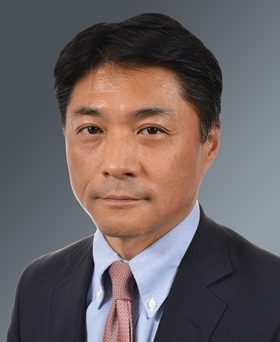Partnership and a common goal: a sustainable society
Check the interview granted by Aiichiro Matsunaga, the CEO of the Mitsubishi Corporation of Brazil, to the Odebrecht Foundation
28 de September de 2015
Check the interview granted by Aiichiro Matsunaga, the CEO of the Mitsubishi Corporation of Brazil, to the Odebrecht Foundation
28 de September de 2015

Since 2009, the Mitsubishi Corporation and the Odebrecht Foundation have been partners in the implementation of productive, educational and environmental projects in the Southern Bahia Lowlands.
The Mitsubishi Corporation, Japan’s largest integrated company, has more than 200 offices in approximately 90 countries. Working in virtually every industry, including environmental business, industrial financing, energy, metals, machinery, chemicals and food. The organization holds as its essence contributing to the enrichment of society, through business, deeply rooted in principles of fairness and integrity.
Check the interview granted by Aiichiro Matsunaga, the CEO of the Mitsubishi Corporation of Brazil, to the Odebrecht Foundation. In it he talks about the projects supported it in the Southern Bahia Lowlands, its striking results in the lives of young people and their families and about a partnership geared for the attainment of a common goal: a sustainable society.
1) In the Southern Bahia, the Development and Integrated Growth Program with Sustainability (PDCIS) has been dedicated to train young rural entrepreneurs offering contextual education, access to citizenship, environmental awareness and generate work and income, aimed at social transformation of families and communities. Which projects Mitsubishi has been supported in this region, how and why?
Aiichiro Matsunaga: Our relationship with Odebrecht Group started in 2008, when Mitsubishi Corporation (MC) began importing to Japan sustainable cocoa produced by Fazendas Reunidas Vale do Juliana, owned by the Odebrecht Family. In 2009, MC, together with an Inter-American Development Bank organization, engaged a project to start supporting small-scale agricultural producers in the southern part of the state of Bahia, under the umbrella of Odebrecht Foundation. In the next year, MC held conversations with Odebrecht Foundation directly to begin supporting young rural entrepreneurs through the Rural Family House in the Southern Bahia Lowlands. At first, we contributed to Igrapiúna Rural Family House, and after seeing what a wonderful project this is, in 2012 we expanded our contribution to Nilo Peçanha and Tancredo Neves Rural Family Houses and as well.
2) What results highlight of these projects and what are the next goals?
AM: Years have passed since MC began participating this program, and in every visit we make, the amazing results are clearly showing. In 2014, over 280 students attended the Rural Family Houses we contribute to, and I have seen happiness in their eyes as they use what they have learned through this project to improve their homeland, so that they can raise their families right there, with no need of leaving. I have also seen other positive results of this project, such as increase in families’ income and increase in land productivity. Being self-confident and using the leadership skills, they have developed to help others as well.
3) The integrated support within the private, public and civil spheres has contributed to the achievement of PDCIS’ social and educational actions. How has Mitsubishi’s relationship with the Odebrecht Foundation been and what is the importance of this collective effort?
AM: Odebrecht Foundation and MC share the common goal of realizing a sustainable society, our engagement approach to both business and society, as well as our management philosophies, creating an effective synergy for both companies to develop CSR activities together. This collective effort is extremely important in order to enable a significant impact in people’s lives and in the society with regard to environmental education and conservation as well as sustainable growth.
4) The Odebrecht Entrepreneurial Technology (TEO), the basis of the Odebrecht culture, focus simultaneously on customer satisfaction and the fulfillment of people. Does Mitsubishi also has a philosophy that guides its Members?
AM: In MC we have the Three Corporate Principles, which were established in 1934 as our rules of conduct. They are composed of “Shoki Hoko”, which means Corporate Responsibility to Society, “Shoji Komei” meaning Integrity and Fairness, and “Ritsugyo Boeki” that means Global Understanding through Business, similarly to Odebrecht’s Fundamental Principles of TEO, which establish the cultural and ethical values that guide your business.
5) What message would you like to leave to the Odebrecht Foundation in this special year, in which the institution completes 50 years of achievements and of the constant practice of the spirit of service?
AM: I would like to express my happiness in being part of Odebrecht Foundation 50th anniversary celebration. Congratulations for creating and maintaining this incredible initiative that has the power of changing the lives of those in need and bringing social development to this country. By our annual contributions to this project, we expect to help promote the development of human resources, since it is truly an important matter from the standpoint of sustainable growth of Brazil in the future. It is a great honor and pride that MC can participate in the very worthwhile CSR activities promoted by the Odebrecht Foundation, and we wish to continue contributing to the development of the Brazilian society and to this specific project until this community can achieve self-sufficiency.
Do you wish to be
a partner in our projects, make
a donation or hire our technical consulting?
Send a message
right now!